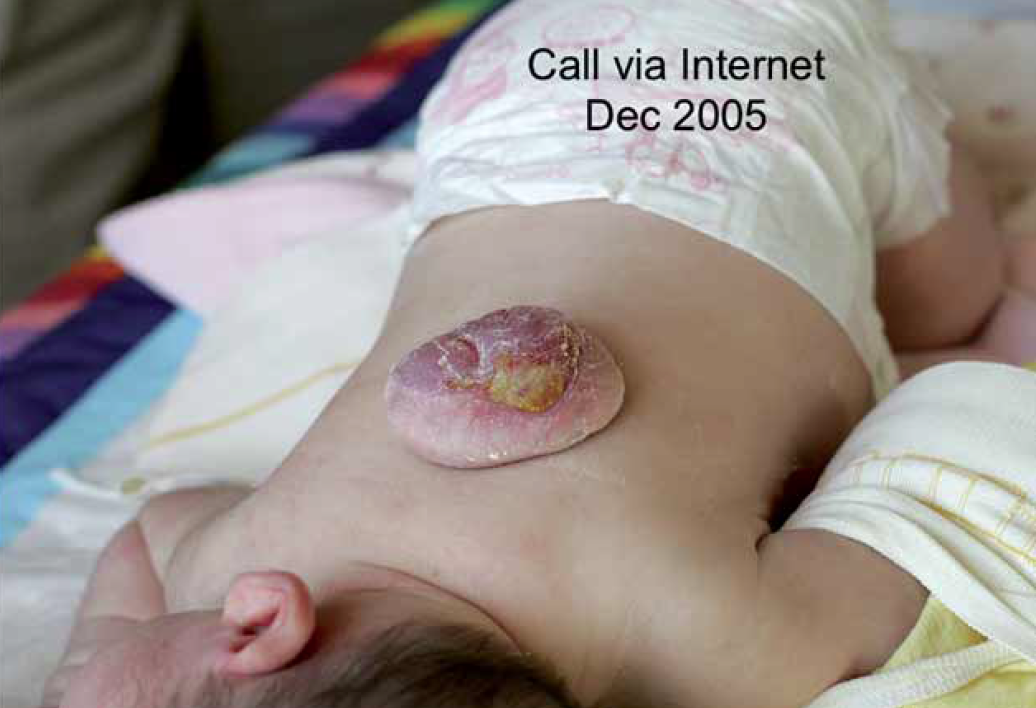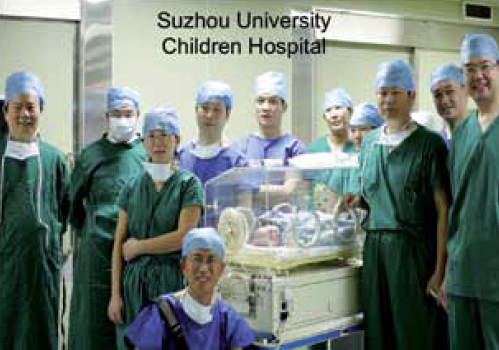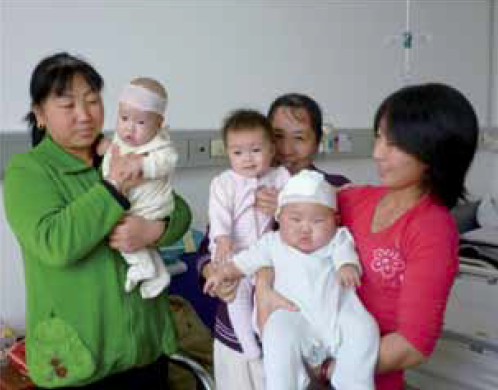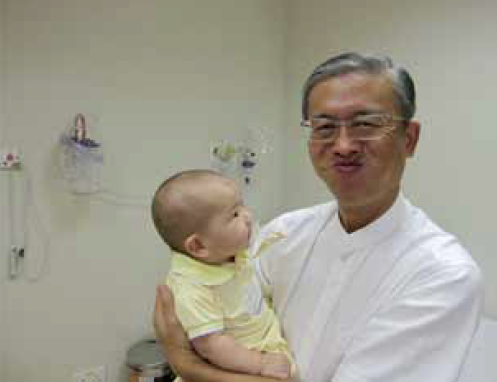© Hong Kong Academy of Medicine. CC BY-NC-ND 4.0
DOCTOR FOR SOCIETY
A gift from above: an interview with Dr Chung-ping Yu
Suki Ho1; Christie Wong2
1 Year 3, Faculty of Medicine, The Chinese University of Hong Kong
1 Year 2, Faculty of Medicine, The University of Hong Kong
“Twinkle twinkle little star, how I wonder what you
are. Up above the sky so high, like a diamond in the
sky...” To many baby orphans born with birth defects
at an orphanage in Suzhou, China, the neurosurgery
service provided by Dr Chung-ping Yu from Hong
Kong and the medical team at Suzhou University
Children Hospital are tantamount to “diamonds in
the sky” in the popular nursery rhyme—sparkling,
warm, caring while also demonstrating a ray of hope
for the underprivileged.
In the past decade the founder and director
of MedArt, Dr Yu, and the voluntary group have
performed more than 200 operations on orphan
babies with neural tube defects. The high demand
for surgical repairs at The First Affiliated Hospital
of Suzhou University means that Dr Yu has to make
monthly trips to Suzhou, amid his hectic schedule
in Hong Kong. Nonetheless the neurosurgeon feels
obliged to serve and has described his involvement
in voluntary work as “a gift from above”.
“Being able to serve is more a privilege than a
burden. Engaging in community service, to me, is a
duty, a call from above that I will respond without
any doubts,” he noted, citing the selfless sacrifice of
Mother Teresa as a role model.
He once travelled to Albania to visit her grave
and admires Mother Teresa for devoting her life to
serving beyond her home country.
The charity adventure of the local neurosurgeon
also happened outside Hong Kong and originated
from an unsolicited email from an orphanage in
Suzhou years ago. “At that time they were desperately
looking for neurosurgeons to help and had sent
emails worldwide soliciting support. Despite the
fact that I was not trained in specialist paediatric
neurosurgery, I still decided to help as I found the
service motto of the orphanage very meaningful: it
encourages people to help in whatever way we can,”
Dr Yu said.
Notwithstanding that each and every one of
us has our own limitations, the charity experience
has inspired Dr Yu to believe that we can always
try to acquire new skills and overcome challenges.
“Honestly, I did not have much experience in
performing surgery on infants at the beginning but
now I have become an expert in the field.”
Over the past years, Dr Yu has treated infants
born with various types of neural tube defects,
handling complicated cases such as babies suffering
from ‘lipomyelomeningocele’.
With faith to serve, Dr Yu has overcome
hurdles in his journey to help the Chinese orphans—undeterred by constraints in resources and facilities
where he serves.
Intuition and the ability to improvise are
probably a key to success. “I remember that we
once had an endotracheal tube falling out during an
operation and that was how we came up with the
idea of suturing it to the chin,” Dr Yu recalled.
To perform surgery on tiny infants poses
another challenge. “We have to insert Foley
catheter with the aid of microscope.” But with full
collaboration and staunch support from the team,
Dr Yu has achieved high success rates with the cases.
“I believe that everyone is equal in receiving
quality health care. We should try our best to
ensure that our patients receive the best care.” Dr Yu
remarked.
Although one cannot change the medical
system nor overcome the fact that Chinese babies
with body defects may well be abandoned, we can
always take the lead to help.
“The most important thing is—never say NO.
When you serve, give the best you have.”
Underlying this hard work is the bright smile
of the seemingly ‘cool-looking’ surgeon holding the
babies he has helped. This is the ‘encouragements’ he
has gained from the charity work.
Dr Yu is delighted to see the postoperative
babies living in foster homes being well cared for
by nannies. Successful operations have also helped
increase the chance of babies seeking adoption.
“About 40% of babies treated have been
successful in getting adoption by families. In one of
the cases, a boy who would have become paralysed
without an operation has been adopted by a Swedish
family and he can now ski and ride on a bicycle like a
normal kid,” said Dr Yu with a satisfying smile.
He encourages others to become involved
in charity work. “Everybody has a gift to give. We
should make good use of it and pass it on by serving
others.”
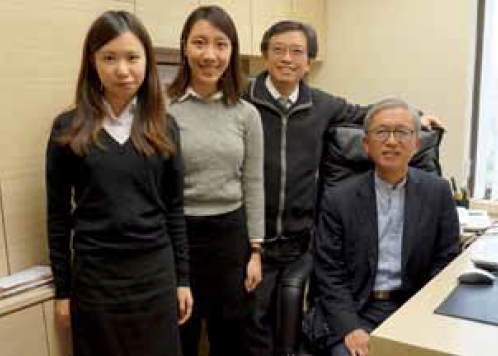
(from left) Student reporters: Suki and Christie; Dr Yiu-wah Fan (colleague of Dr Yu), and Dr Chung-ping Yu


